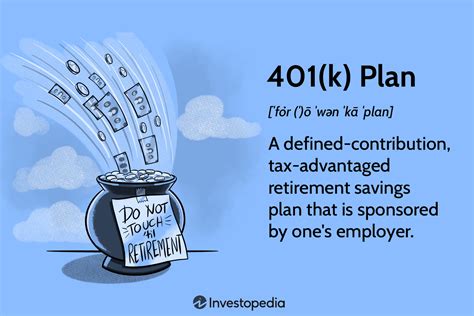
A potential trillion-dollar surge in the cryptocurrency market hinges on clear regulatory frameworks from the U.S. Congress, according to Kevin O’Leary, Chairman of O’Shares Investments. O’Leary believes that institutional investors are currently sidelined, awaiting regulatory clarity before committing significant capital to the space. He argues that once regulations are established, a massive influx of capital will propel the crypto market to new heights.
O’Leary Highlights Regulatory Hurdles as Key to Crypto Growth
Kevin O’Leary, also known as “Mr. Wonderful” from the television show Shark Tank, asserts that the lack of regulatory clarity in the United States is the primary obstacle preventing the cryptocurrency market from reaching its full potential. He emphasized that large institutional investors, including pension funds, sovereign wealth funds, and insurance companies, are hesitant to allocate capital to crypto assets due to the existing regulatory uncertainty.
“What’s holding back the crypto industry from going to the next level?” O’Leary asked during a recent interview. “Regulation. That’s it. We don’t have regulatory clarity.” He further elaborated that these institutional giants require a well-defined regulatory environment to satisfy their compliance departments and risk management protocols.
O’Leary highlighted the specific concerns of these investors, stating, “They don’t want to be cowboys. They don’t want to be outlaws. They want to be compliant.” This desire for compliance is driven by the stringent regulatory requirements and fiduciary responsibilities that govern their investment decisions. Without a clear understanding of how cryptocurrencies are classified and regulated, these institutions remain on the sidelines, preventing a significant injection of capital into the market.
The Promise of Trillion-Dollar Inflows
O’Leary predicts that once regulatory clarity is established, a substantial amount of capital, possibly reaching trillions of dollars, will flow into the cryptocurrency market. This influx would be driven by the pent-up demand from institutional investors who have been waiting for the right conditions to enter the market.
He emphasized the magnitude of potential investment, noting that institutional investors collectively manage trillions of dollars in assets. Even a small allocation of their portfolios to cryptocurrencies would result in a significant increase in the market capitalization of the crypto market.
“If we get the regulatory clarity we seek, trillions of dollars will come into this sector,” O’Leary stated. He believes that this influx of capital would not only increase the value of existing cryptocurrencies but also spur innovation and development within the crypto industry.
SEC’s Role and the Need for Clear Guidelines
O’Leary acknowledged the role of the Securities and Exchange Commission (SEC) in regulating the cryptocurrency market. However, he stressed the importance of the SEC providing clear and consistent guidelines for the industry to follow. He argued that the current regulatory ambiguity is hindering innovation and preventing legitimate crypto businesses from operating effectively in the United States.
He cited specific examples of regulatory uncertainty, such as the classification of certain cryptocurrencies as securities. The SEC has taken enforcement actions against crypto companies for allegedly offering unregistered securities, which has created confusion and uncertainty within the industry.
O’Leary believes that Congress needs to step in and provide a comprehensive regulatory framework for cryptocurrencies. He argues that this framework should address key issues such as the classification of digital assets, the registration of crypto exchanges, and the regulation of stablecoins.
O’Leary’s Crypto Investments and Perspective
O’Leary himself is a notable investor in the cryptocurrency space. He has publicly disclosed his investments in various cryptocurrencies, including Bitcoin, Ethereum, and Solana. He has also invested in several crypto-related companies, such as crypto exchanges and blockchain technology firms.
His personal involvement in the crypto market gives him a unique perspective on the challenges and opportunities facing the industry. He understands the potential of cryptocurrencies to transform the financial system, but he also recognizes the need for clear regulations to protect investors and prevent illicit activities.
O’Leary’s advocacy for regulatory clarity is driven by his belief that it is essential for the long-term growth and stability of the cryptocurrency market. He argues that clear regulations will not only attract institutional investors but also create a more level playing field for all participants in the market.
Global Regulatory Landscape
O’Leary also touched upon the global regulatory landscape for cryptocurrencies. He noted that some countries, such as Singapore and Switzerland, have already established clear regulatory frameworks for digital assets. These countries have become attractive destinations for crypto companies seeking a more favorable regulatory environment.
He warned that the United States risks falling behind other countries in the development of the crypto industry if it does not establish clear regulations soon. He argued that the U.S. has historically been a leader in financial innovation, and it should not allow regulatory uncertainty to stifle innovation in the crypto space.
O’Leary emphasized the importance of the United States remaining competitive in the global crypto market. He believes that clear regulations will not only attract investment and innovation but also create jobs and economic growth.
The Potential Benefits of Crypto Regulation
Beyond attracting institutional investment, clear crypto regulations could offer numerous other benefits to the financial system and the economy as a whole.
- Investor Protection: Regulations would provide investors with greater protection against fraud and manipulation. This would increase confidence in the crypto market and encourage wider adoption.
- Market Stability: Regulations could help to stabilize the crypto market by reducing volatility and preventing excessive speculation.
- Combating Illicit Activities: Regulations could help to prevent the use of cryptocurrencies for money laundering, terrorist financing, and other illicit activities.
- Innovation and Growth: Regulations could foster innovation and growth in the crypto industry by providing a clear legal framework for businesses to operate within.
- Tax Revenue: Regulations would make it easier for governments to collect taxes on crypto transactions.
The Current State of Crypto Regulation in the U.S.
The current state of crypto regulation in the United States is characterized by a patchwork of federal and state laws, regulations, and guidance. There is no single comprehensive regulatory framework for cryptocurrencies, which has created uncertainty and confusion within the industry.
- Securities and Exchange Commission (SEC): The SEC has asserted jurisdiction over certain cryptocurrencies, claiming that they are securities. The SEC has brought enforcement actions against crypto companies for allegedly offering unregistered securities.
- Commodity Futures Trading Commission (CFTC): The CFTC has asserted jurisdiction over Bitcoin and Ether, classifying them as commodities. The CFTC regulates the trading of Bitcoin and Ether futures contracts.
- Financial Crimes Enforcement Network (FinCEN): FinCEN regulates crypto exchanges and other crypto businesses as money service businesses (MSBs). MSBs are required to comply with anti-money laundering (AML) regulations.
- State Regulations: Many states have enacted their own laws and regulations governing cryptocurrencies. These regulations vary from state to state, which has created additional complexity for crypto businesses.
O’Leary’s Vision for the Future of Crypto
O’Leary’s vision for the future of crypto is one of widespread adoption and integration into the mainstream financial system. He believes that cryptocurrencies have the potential to revolutionize the way we transact and store value.
He envisions a future where cryptocurrencies are used for everyday transactions, such as buying goods and services online and in stores. He also believes that cryptocurrencies will play an increasingly important role in investment portfolios.
O’Leary acknowledges that there are still challenges to overcome before cryptocurrencies can achieve widespread adoption. However, he is optimistic about the future of the industry and believes that clear regulations will pave the way for continued growth and innovation.
The Impact of Stablecoins
O’Leary specifically highlighted the role of stablecoins, cryptocurrencies pegged to a stable asset like the US dollar, as crucial for facilitating widespread crypto adoption. He sees them as a bridge between traditional finance and the crypto world, making transactions easier and more accessible for everyday users. Clear regulation around stablecoins is, therefore, essential in his view.
He argues that regulated stablecoins can provide a more efficient and transparent alternative to traditional payment systems, reducing transaction costs and settlement times. He also believes that stablecoins can help to promote financial inclusion by providing access to financial services for individuals who are underserved by the traditional banking system.
The Importance of Innovation
O’Leary stressed that regulations should be designed in a way that fosters innovation rather than stifling it. He argued that overly restrictive regulations could drive crypto businesses to other countries, hindering the development of the industry in the United States.
He believes that the government should work with the crypto industry to develop regulations that are both effective and innovation-friendly. He suggested that the government could create a regulatory sandbox, where crypto companies could test new products and services in a controlled environment without having to comply with all of the existing regulations.
Conclusion
Kevin O’Leary’s perspective underscores the critical need for clear and comprehensive regulatory frameworks in the United States to unlock the full potential of the cryptocurrency market. The absence of such clarity is hindering institutional investment and preventing the industry from reaching its next stage of development. With the right regulations in place, O’Leary believes that the crypto market could experience a trillion-dollar boom, driven by the influx of institutional capital and the continued innovation within the industry. The ball is now in Congress’s court to provide the necessary regulatory guidance and create a stable and predictable environment for the growth of the cryptocurrency market. The future of crypto in the United States, and potentially globally, depends on it.
Frequently Asked Questions (FAQ)
1. What is Kevin O’Leary’s main point regarding cryptocurrency and Congress?
Kevin O’Leary believes that the cryptocurrency market’s potential trillion-dollar growth is being hindered by the lack of clear regulatory frameworks from the U.S. Congress. He argues that institutional investors are waiting for regulatory clarity before investing significantly in the space.
2. Why are institutional investors hesitant to invest in cryptocurrency right now, according to O’Leary?
Institutional investors, such as pension funds and insurance companies, require a well-defined regulatory environment to satisfy their compliance departments and risk management protocols. They are hesitant to invest in cryptocurrencies due to the current regulatory uncertainty in the U.S.
3. How much capital does O’Leary predict could flow into the cryptocurrency market if regulations are clarified?
O’Leary predicts that trillions of dollars could flow into the cryptocurrency market once regulatory clarity is established, driven by pent-up demand from institutional investors.
4. What role does O’Leary see stablecoins playing in the future of cryptocurrency?
O’Leary sees stablecoins, cryptocurrencies pegged to a stable asset like the US dollar, as a crucial bridge between traditional finance and the crypto world, facilitating widespread crypto adoption and making transactions easier and more accessible.
5. What specific concerns does O’Leary have about the SEC’s current approach to regulating cryptocurrency?
O’Leary believes the SEC needs to provide clearer and more consistent guidelines. He argues that the current regulatory ambiguity, such as the classification of certain cryptocurrencies as securities, is hindering innovation and preventing legitimate crypto businesses from operating effectively in the U.S.
Extended Article with Deeper Analysis
The Ripple Effect of Regulatory Uncertainty on Crypto Innovation
The lack of clear regulatory guidelines in the United States isn’t just a matter of attracting institutional investment; it’s stifling innovation and pushing crypto businesses to seek more accommodating environments elsewhere. This “brain drain” effect could have significant long-term consequences for the U.S. economy, potentially ceding leadership in the burgeoning blockchain and digital asset space to other nations.
Many startups and established companies alike are facing a difficult choice: remain in the U.S. and navigate a complex and often contradictory regulatory landscape, or relocate to countries with clearer and more supportive frameworks. The latter option is becoming increasingly attractive, as countries like Singapore, Switzerland, and Dubai actively court crypto businesses with promises of regulatory certainty and a favorable business climate.
This migration of talent and capital represents a significant loss for the U.S. economy. It means fewer jobs created, less tax revenue generated, and a slower pace of innovation in a sector that has the potential to transform industries ranging from finance and healthcare to supply chain management and entertainment.
The SEC’s enforcement-focused approach, while intended to protect investors, has inadvertently created a chilling effect on innovation. By targeting specific crypto companies with enforcement actions without providing clear guidance on what constitutes compliance, the SEC has left many businesses uncertain about their legal standing. This uncertainty makes it difficult for companies to attract investment, hire employees, and develop new products and services.
The Need for a Balanced Regulatory Approach
The challenge for regulators is to strike a balance between protecting investors and fostering innovation. Regulations should be designed to prevent fraud and manipulation while also allowing legitimate crypto businesses to thrive. This requires a clear understanding of the technology and its potential applications, as well as a willingness to engage with the industry to develop regulations that are both effective and practical.
A balanced regulatory approach should address the following key areas:
- Digital Asset Classification: Clear guidelines on how different types of digital assets will be classified (e.g., securities, commodities, currencies) are essential for determining the appropriate regulatory framework.
- Exchange Regulation: Crypto exchanges should be subject to robust regulatory oversight to ensure fair trading practices, prevent market manipulation, and protect customer assets.
- Stablecoin Regulation: Stablecoins, which are designed to maintain a stable value, should be subject to regulations that address risks related to their reserves and redemption mechanisms.
- Decentralized Finance (DeFi): Regulations for DeFi protocols, which operate without intermediaries, are particularly challenging due to their decentralized nature. However, regulators need to address risks related to smart contract vulnerabilities, governance, and regulatory compliance.
The Role of Congress in Shaping Crypto Policy
Ultimately, Congress has the power to shape the future of crypto regulation in the United States. By passing comprehensive legislation that provides a clear legal framework for digital assets, Congress can create a stable and predictable environment for the industry to grow and innovate.
Such legislation should address the key issues outlined above, including digital asset classification, exchange regulation, stablecoin regulation, and DeFi. It should also provide regulators with the authority and resources they need to effectively oversee the crypto market.
In addition to legislation, Congress can also play a role in fostering dialogue between regulators, industry participants, and academics. By bringing these stakeholders together, Congress can help to ensure that crypto regulations are informed by a broad range of perspectives and are designed to promote innovation while protecting investors.
The Global Race for Crypto Dominance
The United States is not the only country grappling with the challenges of regulating cryptocurrencies. Countries around the world are vying to become leaders in the digital asset space, and many are adopting more proactive and supportive regulatory approaches.
Singapore, for example, has established a comprehensive regulatory framework for digital payment token services, including crypto exchanges and wallet providers. Switzerland has created a “crypto valley” that has attracted a number of innovative blockchain companies. And Dubai has launched a virtual asset regulatory authority to oversee the development of the crypto industry in the emirate.
These countries recognize the potential of cryptocurrencies to drive economic growth and innovation, and they are taking steps to create a regulatory environment that is conducive to these outcomes. If the United States fails to act, it risks falling behind in the global race for crypto dominance.
The Potential Economic Benefits of Crypto Adoption
The widespread adoption of cryptocurrencies could have significant economic benefits for the United States. These benefits include:
- Increased Financial Inclusion: Cryptocurrencies can provide access to financial services for individuals who are underserved by the traditional banking system.
- Reduced Transaction Costs: Cryptocurrencies can reduce transaction costs by eliminating intermediaries and streamlining payment processes.
- Faster Payment Processing: Cryptocurrencies can enable faster payment processing, particularly for cross-border transactions.
- New Business Opportunities: Cryptocurrencies can create new business opportunities in areas such as decentralized finance, non-fungible tokens (NFTs), and the metaverse.
- Increased Innovation: Cryptocurrencies can spur innovation in the financial sector and beyond.
The Risks of Inaction
The risks of failing to establish clear crypto regulations are significant. These risks include:
- Lost Economic Opportunities: The United States could miss out on the economic benefits of crypto adoption.
- Increased Financial Crime: The lack of regulation could make it easier for criminals to use cryptocurrencies for money laundering and other illicit activities.
- Investor Harm: The lack of investor protection could lead to significant losses for investors who are not aware of the risks associated with cryptocurrencies.
- Reduced Innovation: The uncertainty surrounding crypto regulations could stifle innovation and drive businesses to other countries.
- Erosion of U.S. Leadership: The United States could lose its leadership position in the global financial system.
O’Leary’s Call to Action: A Summary
Kevin O’Leary’s message is clear: the time for Congress to act on crypto regulation is now. The future of the cryptocurrency market, and potentially the future of financial innovation in the United States, depends on it. By establishing clear and comprehensive regulations, Congress can unlock the trillion-dollar potential of the crypto market, protect investors, and ensure that the U.S. remains a leader in the global digital asset space. Failure to act risks stifling innovation, ceding leadership to other nations, and missing out on the significant economic benefits that crypto adoption could bring. O’Leary frames this not just as an opportunity, but as a critical imperative for the continued economic health and competitiveness of the United States in the 21st century. The regulatory framework needs to be thoughtfully constructed, encouraging innovation while mitigating risks, and fostering a climate of certainty for both investors and businesses in the crypto ecosystem. Only then can the full potential of this transformative technology be realized, benefiting individuals, businesses, and the economy as a whole.









